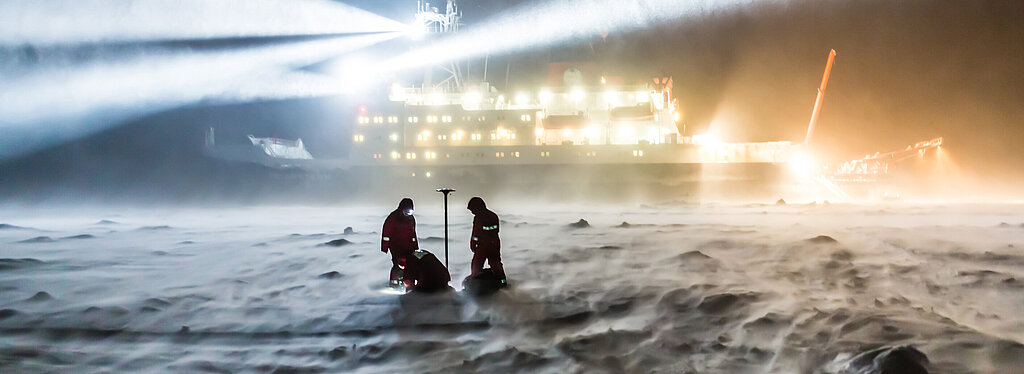Data are an indispensable asset for natural sciences. They enable scientists to prove, differentiate or falsify hypotheses. This applies to climate and ocean research as elsewhere. In autumn 2019, a group of scientists set out on a very special journey. During the MOSAiC expedition, the German icebreaker “Polarstern” drifted across the Arctic Ocean for an entire year, moored to a large ice floe. The most ambitious scientific exhibition of the century had a budget of €140 million; the value of the information it collected is immeasurable.
The vessel "Jákup Sverri" is similarly well-equipped for demanding voyages: 54 metres in length, the research ship is currently travelling in coastal waters off the Faroe Islands on behalf of the local ocean research institute. She carries complex, state-of-the-art equipment for oceanographic and fishery-related research activities as well as four laboratories and a dynamic positioning (DP) system. "One of the ship’s truly outstanding characteristics is the fact that it is one of the quietest vessels ever built. This is owing to the diesel-electric propulsion system with elastically mounted diesel generators and an electrically driven, five-vane, ultra-quiet propeller," says Gijsbert de Jong who heads the maritime division of the classification society Bureau Veritas. To minimise the impact of ship operations on sea-dwelling organisms, MEST shipyard and the engine manufacturer Wärtsilä collaborated very closely.
Plenty of space for research
An environment-friendly propulsion system is a key requisite for the 55-million euro research vessel to be built for the Hellenic Centre for Marine Research (HCMR), as well. Scheduled for delivery in 2025, it will operate in the Mediterranean, the Black Sea and the Red Sea.
The 70-metre ship will be outfitted with a comprehensive set of scientific equipment. The on-board labs alone will occupy a surface area of more than 200 square metres. The ship will feature a sophisticated winch and hoisting system to lower scientific measuring instruments up to 6000 metres into the water and retrieve them subsequently. The Greek scientists hope to gain key insights into phenomena such as climate change.
The availability of leading-edge marine and submarine technology is a prerequisite for meaningful ocean monitoring. The German company SubCtech is among the specialists in this field. At the Offshore Dialogue during SMM DIGITAL, CEO and Founder Stefan Marx will present the innovative measuring tool “Oceanpack”. It collects data for science on board racing yachts.
Offshore Dialogue will take place on 2 February during SMM DIGITAL.
Participation is free of charge, and no registration is required.
More information about the Offshore Dialogue
Photocredit
Alfred-Wegener-Institut, Stefan Hendricks


